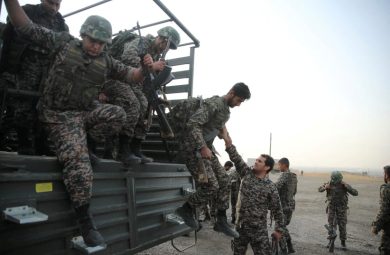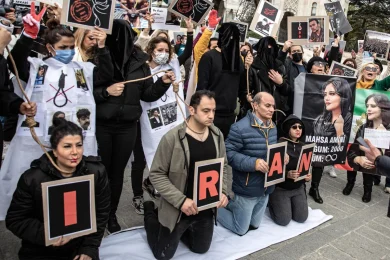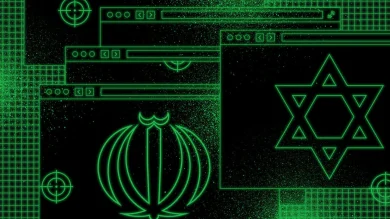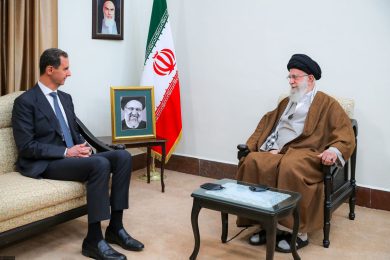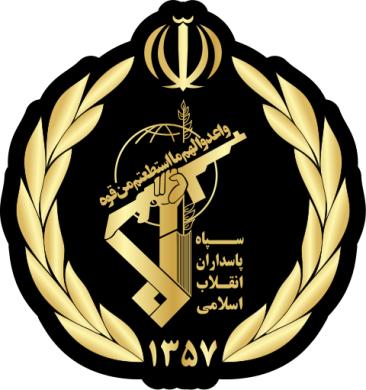The Islamic Revolutionary Guard Corps (IRGC) has long been a central force in Iran’s military, economic, and political landscape, engaging in both domestic repression and regional destabilization. In response to its actions, many countries, including the United States, European Union, and Canada, have imposed economic sanctions aimed at weakening the IRGC’s power. These sanctions target the IRGC’s financial networks, industries, and affiliated businesses, with the goal of limiting its ability to fund operations both inside and outside Iran. The key question remains: Are these economic measures effective in weakening the IRGC and restricting its influence, or do they primarily harm ordinary Iranians? This report examines the scope of sanctions, their economic impact, IRGC adaptations, and the broader effectiveness of these measures.
1. Understanding Sanctions Against the IRGC
Sanctions against the IRGC have been implemented primarily by Western nations, focusing on limiting the organization’s financial strength and global operations.
A. Types of Sanctions Imposed
1. Targeted Economic Sanctions
• Restrictions on businesses and individuals linked to the IRGC.
• Asset freezes and financial bans on IRGC-affiliated organizations.
• Banning IRGC-controlled banks and institutions from international transactions.
2. Oil and Energy Sanctions
• Since Iran’s economy heavily depends on oil exports, many sanctions target Iran’s energy sector, restricting revenue streams that fund the IRGC.
• U.S. sanctions have pressured countries to halt Iranian oil imports, reducing Iran’s income.
3. Terrorism-Related Sanctions
• The United States designated the IRGC as a Foreign Terrorist Organization (FTO) in 2019, the first time an official military branch of a nation-state received such a designation.
• Sanctions prevent foreign companies from conducting business with IRGC-affiliated groups, particularly in Middle Eastern conflict zones.
4. Banking and Financial Sanctions
• Iranian banks linked to the IRGC are cut off from the SWIFT international banking system, limiting their ability to move funds globally.
• Restrictions on Iran’s access to foreign reserves make it difficult for the regime to finance IRGC operations abroad.
2. Economic Impact on the IRGC and Iran’s Regime
Sanctions have undeniably affected Iran’s economy, but the extent to which they have weakened the IRGC remains a subject of debate.
A. How Sanctions Have Weakened the IRGC
• Reduced Funding for Proxy Groups
• Reports suggest that funding to Hezbollah, Houthi rebels, and Iraqi militias has been cut due to financial constraints.
• IRGC-affiliated proxies have struggled with cash shortages, affecting their ability to purchase advanced weaponry.
• Weakened Access to Global Markets
• The IRGC controls vast sectors of Iran’s economy, including construction, oil, and manufacturing. Sanctions have made it harder for these sectors to access global trade.
• Many multinational corporations have withdrawn from Iran, limiting the IRGC’s business expansion.
• Pressure on IRGC-Owned Companies
• Businesses tied to the IRGC, such as Khatam al-Anbiya Construction Headquarters, have lost contracts due to Western financial restrictions.
• The IRGC has had to rely more on domestic investments and covert trade networks to sustain its operations.
B. How the IRGC Has Adapted
Despite economic pressures, the IRGC has found ways to circumvent sanctions, sustaining its operations in various ways:
• Black Market and Smuggling Networks
• The IRGC has expanded its use of illegal trade routes, smuggling oil, gold, and drugs to generate revenue.
• Iranian oil continues to be sold through third-party nations, such as China and Venezuela, bypassing official trade restrictions.
• Cybercrime and Cryptocurrency
• The IRGC has increasingly relied on cyber theft, hacking financial institutions, and using cryptocurrency for transactions that evade sanctions.
• Iran has developed digital payment systems to replace SWIFT, reducing the impact of banking restrictions.
• Economic Partnerships with Russia and China
• Iran has deepened economic and military ties with Russia and China, allowing it to bypass Western trade restrictions.
• China continues to import Iranian oil, providing the IRGC with a crucial revenue stream.
3. Do Sanctions Harm the Iranian People More Than the IRGC?
One major criticism of broad economic sanctions is that they hurt ordinary Iranians more than the regime and IRGC.
A. Worsening Economic Hardship for Citizens
• Inflation and Unemployment
• Sanctions have weakened Iran’s economy, leading to high inflation, job losses, and rising poverty levels.
• Iranian citizens struggle with the rising cost of food, medicine, and essential goods due to import restrictions.
• Healthcare Shortages
• Although sanctions do not target medical supplies, financial restrictions have made it harder for hospitals to import life-saving medicines.
• Patients with conditions like cancer and rare diseases face severe shortages in treatment options.
B. Strengthening the IRGC’s Power Over the Economy
• The IRGC controls key industries, meaning sanctions often push more economic activity under its control rather than diminishing its influence.
• The regime blames foreign interference, using sanctions to justify domestic crackdowns and anti-Western propaganda.
• The IRGC profits from black market operations, increasing its control over smuggling networks.
4. Can Sanctions Effectively Weaken the IRGC?
While sanctions pressure the IRGC, they alone may not be enough to dismantle its power.
A. Strategies to Strengthen Sanctions Effectiveness
• More Targeted Sanctions on IRGC-Linked Businesses
• Expanding sanctions against front companies will reduce their ability to generate revenue.
• Greater coordination with European and Asian countries can prevent sanction evasion tactics.
• Improving Financial Enforcement
• Strengthening measures against illicit trade networks can limit the IRGC’s ability to move funds through illegal channels.
• Closer monitoring of cryptocurrency transactions used by IRGC affiliates can help disrupt cyber-financing.
• Expanding Support for Iranian Civil Society
• Sanctions should be paired with economic relief programs to help Iranian citizens access essential goods and services.
• Increased funding for independent media and digital security tools will empower Iranian activists.
Conclusion: Sanctions Alone Are Not Enough
Sanctions have financially weakened the IRGC, reduced its foreign funding, and isolated Iran’s economy, but they have not completely dismantled the IRGC’s power. The regime has adapted by expanding illicit trade, deepening ties with China and Russia, and increasing domestic control.For sanctions to be more effective, they must be enforced globally, target IRGC assets more precisely, and be paired with diplomatic and technological strategies that empower Iranian activists and opposition groups. Economic pressure alone will not bring change—coordinated global action and internal resistance are key to truly weakening the IRGC’s grip on Iran.
Join Our Newsletter!
Stay informed with the latest updates, news, and ways to take action in the fight for justice and global security. Sign up now to get updates delivered straight to your inbox!

